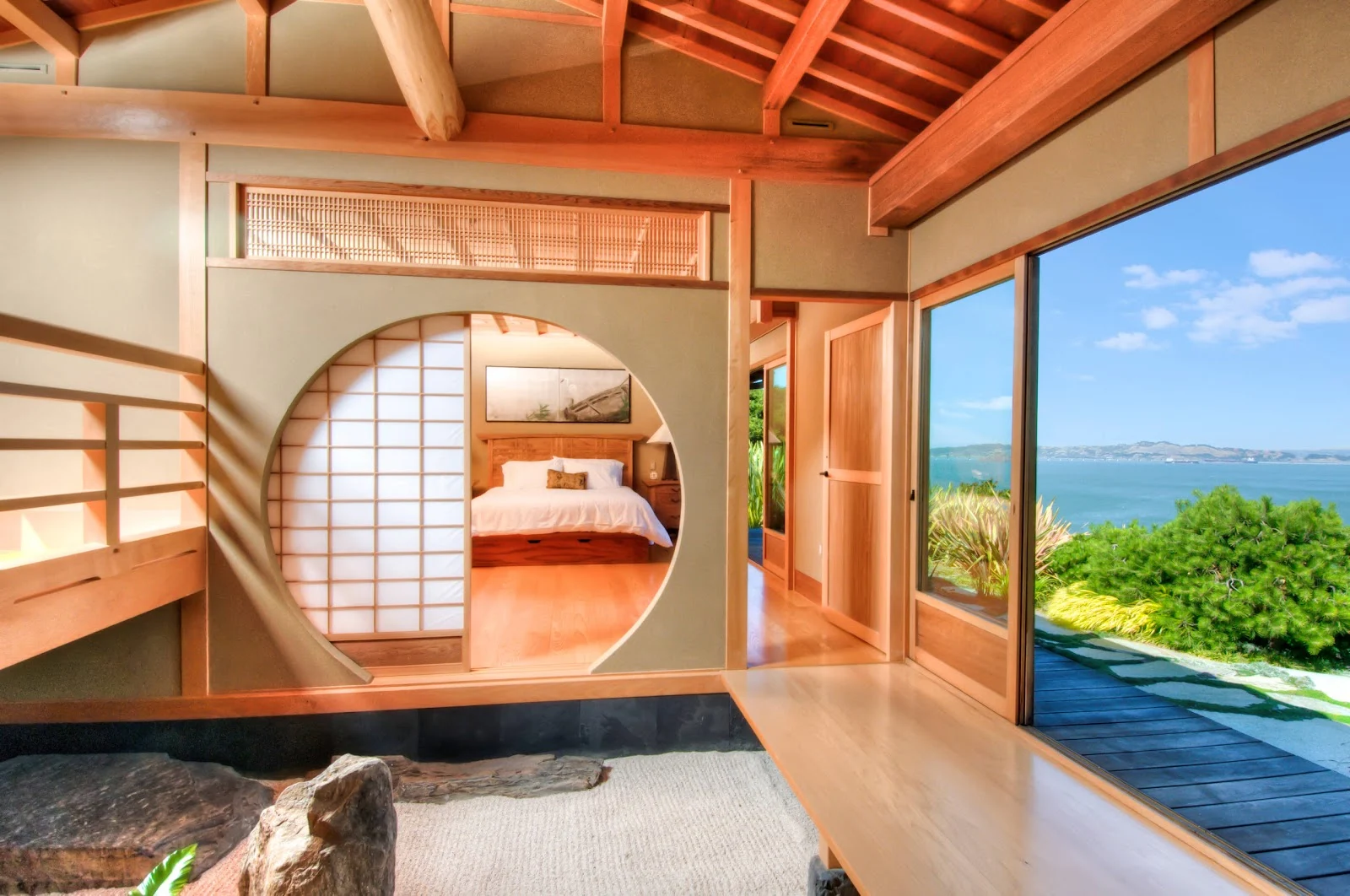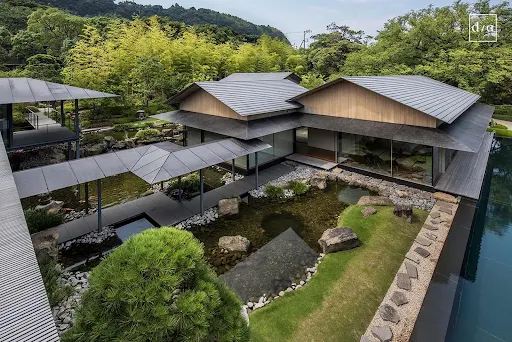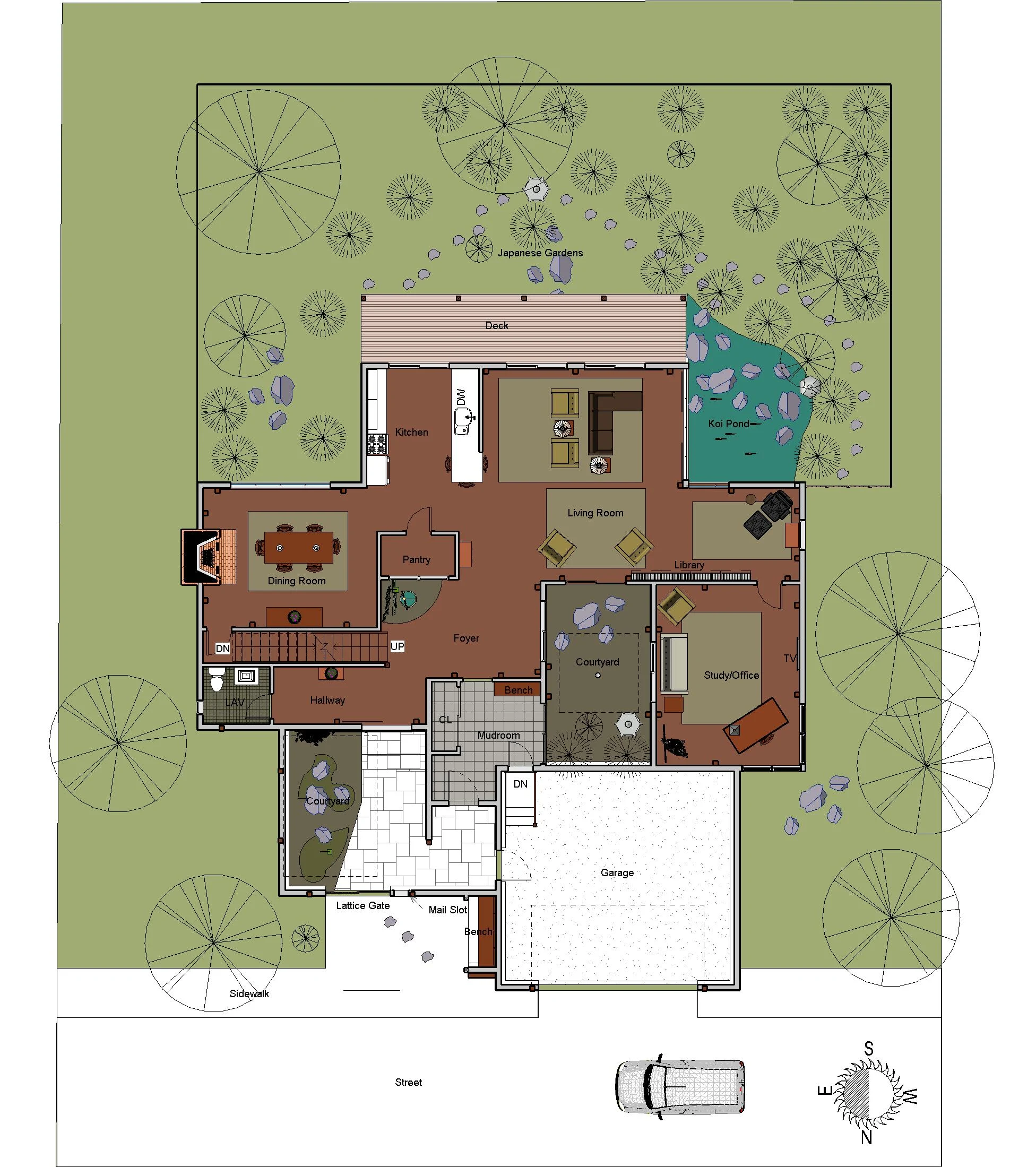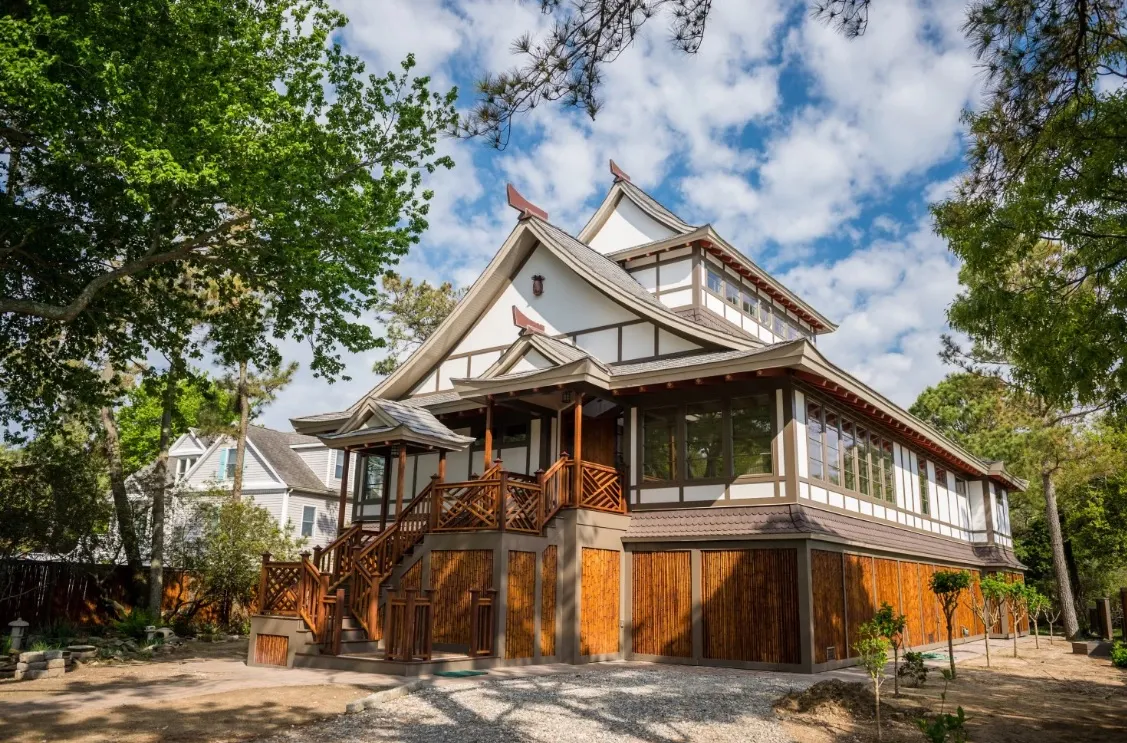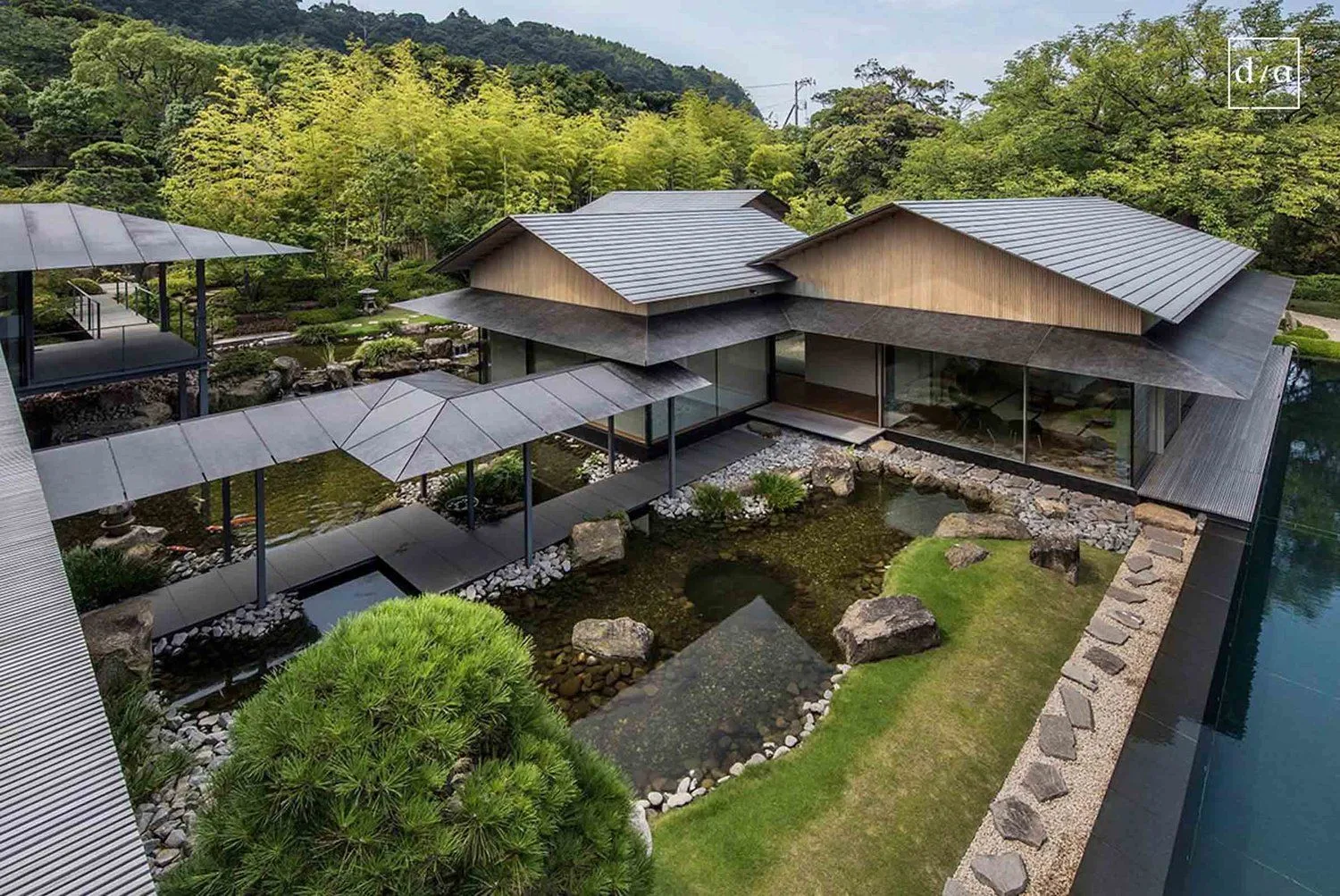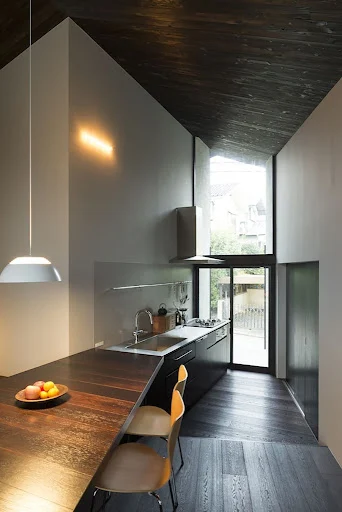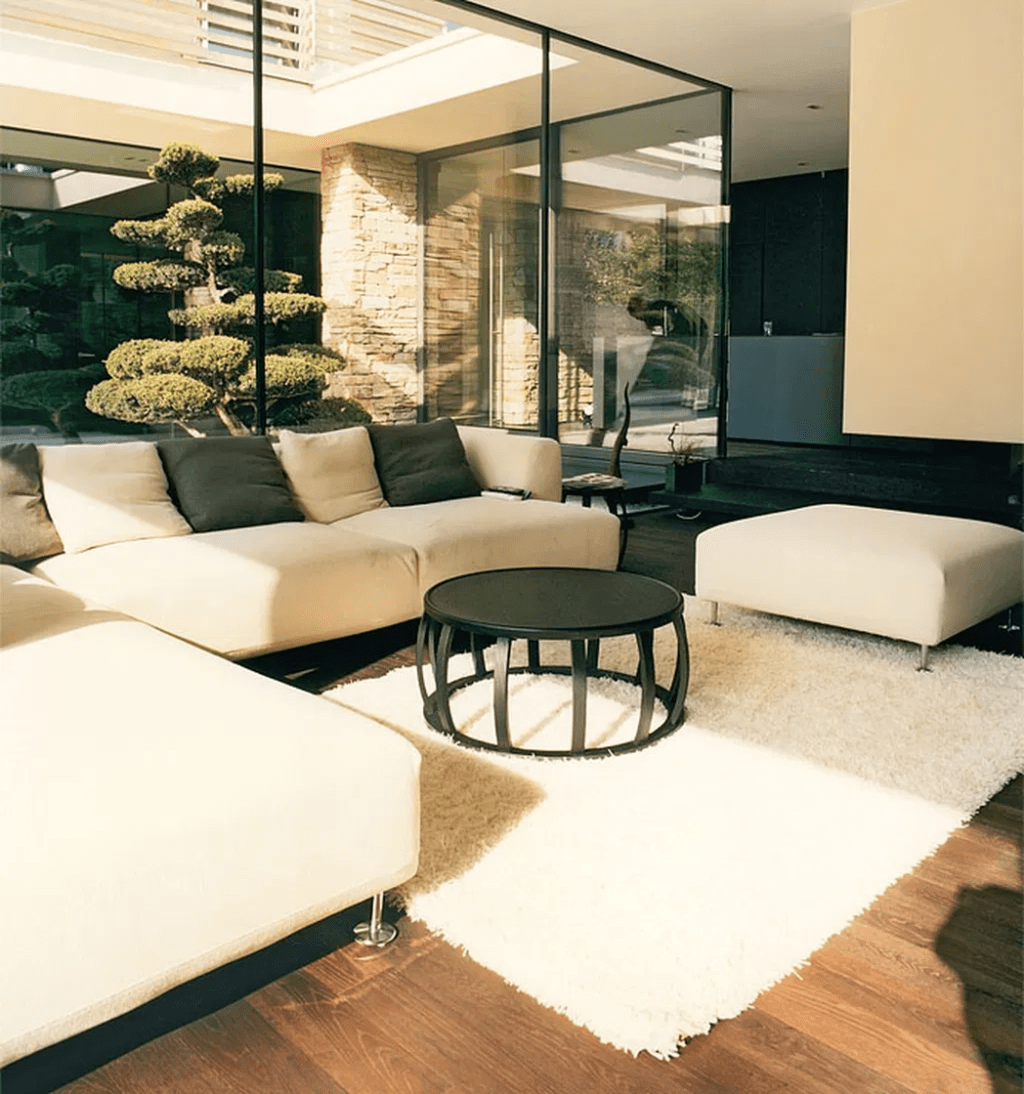Japanese Inspired Interior Architecture Design
By Abu Rizal at: January 11, 2022
If you're looking for a floor plan for a Japanese house, you've come to the right place. This home design project is a 100% original home floor plan designed by Homestyler.
Japanese House Floor Plan
It has 13 photorealistic rendered images to showcase the design of each roomTake a look at some of these pictures below
Once you've found one you like, it's time to start planning! And remember, it's never too late to make changes to your plans
In Japan, you can find a number of different floor plans
These can be very detailed and are suited for small families
Some of these are holiday cottage plans with gable roofs, while others are much simpler
A Japanese house floor plan is an ideal choice if you want to experience the ambiance of the country's rich culture and tradition
Listed below are some of the most popular Japanese home styles
When designing a floor plan for your home, be sure to consider its size and location
The Seki House is one of the most popular examples of a traditional Japanese house
It has two distinct volumes, a covered central area, and large doors
The exterior features a terrace on the second floor
The roof is supported by 10 pillars, which allow the homeowners to enjoy barbecue parties outdoors
Its interior features a large central covered space
The pillars are arranged side-by-side so that the space flows into the garden and the surrounding spaces
Most of the Japanese houses are smaller than Western homes
These homes are not suited for big cities, like Tokyo, so they might not be the most suitable choice for an urban area
While most of the houses have a traditional floor plan, you may not find it suitable for a crowded area like Tokyo
There's a good chance that you'll have to live in a smaller, more affordable apartment with a more basic floor plan
Another feature of a Japanese house is the use of natural materials
The materials used in the construction of a Japanese house are made of wood, and the interiors are often made from cedar
For example, a traditional Japanese house may not be suitable for a large city, but it's likely to be more suited for a small area
This means that it can't be used in large cities, but it's a good idea for a city
Most traditional Japanese houses have partitions that can be moved
Fusuma, which are portable sliding doors, are made of wood and paper and can be removed when they're no longer needed
They can even create mini rooms on the ground floor
The Japanese House Floor Plan is the most popular in the world
Its simple design is perfect for those who want a minimalistic, minimalist-looking home
And the beauty of it is that it's also very adaptable and easy to customize
Back to Content ↑
The Beauty of a Japanese Style Home
The beauty of a Japanese style home can be seen in its simplicity and minimalismThe interior design is also very simple and natural, with plenty of natural wood elements, natural greenery, natural lighting, and contemporary furnishings
You can also incorporate water features and plenty of colors from nature
Whether you have a small apartment, a large one, or an entire house based on this design concept, there's a Japanese style home for you
The colors of a Japanese style home are inspired by nature, with softer tones used throughout the room
Bright colors are usually kept to a minimum
The rooms are often filled with plants and other greenery to bring life into the space
The pillows are done in a deep red color, which symbolizes luck, strength, and energy
While you may find the traditional wood home to be a bit expensive, there are many modern versions of this design that are much more affordable and still maintain the traditional feel
The minimalist look is the hallmark of a Japanese style home, with little fuss or decoration
The walls are usually bright and white, with a minimalist color palette
Accessories and objects can also be found in this style, including authentic sakura branches, statues, and accessories
A Japanese-style home can be as simple as a small pot with a simple pot
If you're unsure about whether or not to buy a small pot, be sure to check with the owner before making a final decision
The cost of a Japanese style home can vary widely
It depends on the materials you choose and the architect you hire
An architect can help you determine the best design that will fit your needs and budget
The cost of buying the land is another significant factor, as this will determine how much it will cost to build
You'll also need to prepare the site properly, which can cost around $1,500
In some cases, you'll need to hire a landscaper
The Japanese culture is known for its use of wood
In their homes, the decor is primarily composed of wooden items
A typical Japanese style home includes a traditional, or "washitsu", room
This is a room with tatami flooring, shoji window coverings, and futons
A traditional washitsu may even have sliding glass doors to create a more open, spacious room
These are a few of the most important details of a modern Japanese style home
The Japanese house can be highly diversified in its use
Typically, the basic layout of a Japanese home is a kitchen, toilet, and two living rooms, referred to as genkan
In addition to the genkan, there are also multiple living spaces, and a bathroom
All of these areas should be functional, allowing you to use the space as needed
In general, a Japanese style home is very spacious and has a lot of room to grow
Back to Content ↑
Japanese Decor Ideas For Your Home
There are many ways to bring the simplicity of Japanese home decor into your homeWhile you can't purchase the Japanese culture itself, you can add the look and feel of Japanese culture to your own home with some basic furnishings
Here are some ideas: Bamboo flooring, wood flooring, and Japanese motifs
If you're planning to buy a whole house full of furniture and accessories, you can use the ideas above as your inspiration
If you're on a budget, you can start by using some of the Japanese decor ideas that are available
Natural light is important to the Japanese way of life
Use large windows and sliding doors to bring warm sunlight into your home
You can also choose to use white paint for walls and ceilings to give your room a bright feel
You can also add a few pieces of natural art such as woven baskets or bamboo blinds to your home
These pieces of decor will make your home seem more welcoming and inviting
If you're not a fan of painting, you can always opt for simple, natural materials
The use of bamboo is another great idea for your home
Whether you want to use it as bold wall paneling or subtle furniture, bamboo can bring an earthy touch to any room
Additionally, most Japanese homes have a Butsudan shrine, which contains special Buddhist relics and family mementos
Buddha statues are a great way to bring in some serenity to your home
If you're looking for a way to incorporate Buddhism into your home decor, a Buddha statue will definitely be a good option
A Buddha statue will also encourage you to practice meditation
There are several ways to bring the Japanese culture into your home
One great way is to use woodblock prints
Woodblock prints are beautiful and can add a timeless look to your home
They can complement a flower arrangement or a bonsai plant, which is an essential part of Japanese culture
Moreover, bamboo is often incorporated into many other design elements, including furniture and picture frames
For a more unique look, you could even add some bamboo in the room
Wood is an important part of Japanese culture
They have a strong affinity for wood and bamboo and use it in their homes
For example, in their homes, they use maple, cypress, and hemlock, among other types of wood
These are common woods in the West, while bamboo is widely used in eastern regions
For a more unique and authentic look, you can opt for a more exotic choice
This way, you can add Japanese decor to any room of your home and bring the aesthetic beauty of Japanese homes
While traditional Japanese home decor is based on the ancient culture, modern Japanese style is rooted in simplicity
A Japanese tea room is an ideal place to meditate and enjoy a cup of tea
A water feature will drown out any distracting sounds
The colors and materials used in such a room should be soothing and harmonious
It is best to keep the decor as neutral as possible to make the space more relaxing for you
A Japanese bathroom should be spacious and not have an excess of furniture
Back to Content ↑
How to Create a Modern Japanese Bedroom
A Modern Japanese Bedroom should use neutral earth tones such as cream, brown, beige, and blackHowever, accent pieces of bright nature colors can be used to add character to the room
The most popular colors for accent pieces are red, green, and blue
You can also use a combination of these colors for a unique look
A good example of a wall art piece in this style is a framed painting of a cherry blossom
In a Modern Japanese bedroom, the floor is covered in rice straw and features a low-height wooden bed with grey beddings
The room is well-lit with a few windows
It is very minimalist and is a great choice for an individual who enjoys nature
Additionally, natural light is a crucial ingredient to a Japanese bedroom
According to Zen teachings, the room should be flooded with natural light so as to create a peaceful atmosphere
You can also add a wood accent to the walls and furniture pieces in your Modern Japanese Bedroom
A low-height wooden bed with grey beddings is a perfect addition to a minimalist space
The rest of the room is decorated with dark-colored decors instead of the traditional Japanese ones
The bedroom in the sky is a unique example of this kind of design and would be perfect for a home in a sky-high building
The sky-high ceilings create a unique atmosphere for the bedroom, which is both luxurious and traditional
Lighting in a Modern Japanese bedroom is important
Traditionally, Japanese bedrooms were low to the floor
This was a respectful tradition during the high aristocratic period
In contrast, modern-style bedrooms are more spacious, and you can install skylights or replace Shoji doors with French doors or a simple window covering
The main objective is to make your bedroom look luxurious and inviting
And if you want a modern Japanese bedroom, there's no better place to start than a loft-style loft
The most important part of a modern Japanese bedroom is to keep it simple and uncluttered
You don't want to overwhelm the room with too many decorations and furnishings
Keeping the space simple and functional is key
Don't let your furnishings be too busy or crowded
Choosing furniture with timeless style is the key to a beautiful, functional bedroom
If you want to create a space that is comfortable and luxurious, go with a contemporary style
To add a modern Japanese bedroom, you should consider the materials used
Unlike a traditional Western bedroom, a modern Japanese bedroom is often made of wood, and the furniture is low and minimalist
Using earth colors for paint and wall paintings can be a great way to add a touch of nature to your space
Adding bamboo can also help you achieve a modern Japanese bedroom that's both stylish and functional
Once you have chosen a color theme, you can then choose the furniture
Back to Content ↑
The Traditional Japanese Bedroom
The Traditional Japanese Bedroom features a minimalist, functional designThe furniture is low to the floor, and the bedding is separate from the rest of the room
Historically, sitting on the floor in a bedroom was considered a respectful tradition in the high-aristocratic period of Japan
Modern versions of the Japanese bedroom feature more modern furnishings that are based on traditional designs
But whether you're interested in a traditional or modern design, the first step in creating a stylish bedroom is to learn how to create the traditional Japanese style
The traditional Japanese bedroom is decorated in black
The bed, the pillows, and the privacy screens are all black
The walls are painted red
The walls, too, are very simple
The decors in a Japanese bedroom are very minimalist
The only other items in the room are paintings, indoor bamboo, and bonsai
In addition to the traditional furniture, there are also traditional elements found in the bedding and pillows
The traditional Japanese bedroom may look simple, but it's not necessarily limited to one color
Unlike European-style bedrooms, the traditional Japanese bedroom has no windows
A low wooden bed, dressed in gray, is the central focal point of the room
Instead of wood or concrete floors, the walls are covered with concrete, and the decors are dark
The sky-high bedroom design is the perfect solution for an apartment in a sky-high building
The sky-high bedroom offers luxurious luxury with traditional Japanese touches
And what's better than sleeping in the sky? The Traditional Japanese Bedroom emphasizes space and minimalism
Treehugger offers a look at a bedroom with little furniture and only a few decorative objects
By keeping the room simple and bare, you'll be more comfortable and relaxed
It's even possible to incorporate de-cluttering techniques such as Marie Kondo
If you're looking for a unique Japanese bedroom, consider these tips
It'll make your bedroom a peaceful, relaxing space
As you can see, the Traditional Japanese Bedroom has several features that set it apart from modern bedrooms
The layout of the room is different and the furniture is smaller
The ambiance is more tranquil and peaceful
It also includes traditional lamps
These lights are essential for the traditional Japanese bedroom
Besides the lamps, there are many other accessories that add to the atmosphere
Some of the most common accessories include tatami paper-covered folding chairs and benches
Aside from the bed, the Traditional Japanese Bedroom also features tatami mats, which are a popular decoration in the United States
The floor coverings in the bedroom are made of rice straw and are extremely comfortable for bare feet
You can place them in front of the bed or in the seating area
The tatami mats add a unique touch to your room
In the bedroom, a tatami mat is an essential part of the entire design
Back to Content ↑
How to Create a Japanese-Living Room
A Japanese living room should be calming and relaxing, so it's best to avoid having speakers in itThe sound of nature should be heard, not loud music
Scents that have a calming effect are often used
Incense is a popular choice, but other scents like lavender, jasmine, and vanilla can be used as well
If you want a more exotic fragrance, try using a Japanese candle or incense burner
The use of red in a Japanese living room is a unique and authentic way to incorporate this bright color into your design
When combined with traditional elements like dark lacquered wood and paper lanterns, it will add a rich and earthy flavor to your interiors
If you'd rather use an accent wall color, red would be an ideal choice
If you'd rather have a neutral color, you could try using a complementary shade of brown
The colors of a Japanese living room are white, beige, and brown
You can also add hieroglyphs to the walls to emphasize the main idea of the interior design
The use of paintings and carpets can amplify the eccentricity of the room
You could display images of geishas or ninjas in a spiritual ritual
Adding a tree is a beautiful way to add natural beauty to a room
Another important element of a Japanese living room is the view
It should have a view of nature, preferably a water spring or mountain
Alternatively, a garden is another great choice
For a true Japanese living room, the most important thing is to have a view of nature
In addition to trees, plants also add a natural flavor to a room
For those who don't have a garden, artificial plants can mimic the effect
Light is the essential element of any Japanese living room
This is because light is essential for life
The Japanese people consider access to sunlight a natural right
Their living rooms are designed to face the sun for maximum sunlight
They also use natural materials for their interior decor, including bamboo and wicker
A wood floor is a wonderful choice for a space with little to no space
If you have limited space, you can copy the style of a Japanese living room
A Japanese living room often has a large amount of empty space, so it's important to avoid adding too much furniture
A Japanese living room will not have many decorative items, but it will have a lot of natural elements
A bonsai is a miniature tree grown in a pot or container
Other common plants include orchids, bamboo, and ferns
Even if you don't have a garden, adding a plant to your living room is a great way to add natural beauty
Back to Content ↑
Minimalist Japanese Kitchen Design
Minimalist Japanese kitchen design is a modern style that emphasizes simplicity and delicacyThe basic color palette includes white and neutral greys, but pops of blue add a splash of refreshing color
Natural elements can be used to create a serene atmosphere
A small zen indoor garden or view of the outdoors can be added to the kitchen
Lastly, the use of concrete or glass in a minimal design scheme is an attractive option
The layout and angles of the Japanese minimalist kitchen design can make it look very unique
The walls and doors of the kitchen are made of glass, which makes the entire space look spacious
It also has a wooden countertop that coordinates with the dining table
The open shelves are another feature of the Japanese interior design
They are extremely functional and can even be aesthetically appealing
The open shelving is a feature that's popular in the minimalist style of kitchens
The Japanese are known for their appreciation of simplicity and minimalism
Their minimalist kitchen design is not only functional but also beautiful
The materials used are muted and simple, and the lighting fixtures are simple
A dining table should match the dining table, and chairs should not take up too much space
Additionally, the lack of unnecessary decor is another important factor to consider when decorating a kitchen
You'll want to store things that you don't need every day in a separate room
As you can see, the Japanese minimalist kitchen design can be quite versatile
You can add interesting lighting fixtures or a splash of green to create a unique environment
It can also use adjacent spaces to make the most of them
It's a practical style, and it's great for small spaces as well
The open shelves and the open cabinetry make the space feel cozy and spacious
This style of kitchen is ideal for people with limited space
A Japanese minimalist kitchen is very functional
Its minimalist design can incorporate open shelves and interesting lighting fixtures
The kitchen can be open or closed, and it can be made to look like a natural space
The minimalist kitchen has no furniture and is very functional
You can also use this style to decorate your home
A Japanese minimalist kitchen is an excellent choice for those looking for a contemporary style
It can be very practical and create a warm atmosphere
Its layout is very functional and is perfect for small spaces
The Japanese minimalist kitchen is also very stylish, and has many of the characteristics of a minimalist Scandinavian kitchen
The open shelves are convenient and look natural
This style has an unusual look but is still elegant and chic
It is a practical design that is both beautiful and functional
It will definitely add character to your home
It is also a popular choice for those who love simple, clean lines
Back to Content ↑
Minimalist Modern Japanese Garden
The aesthetic style of a minimalist modern Japanese garden has many ties to traditional Zen gardens, including the simplicity of materials, natural beauty, and a soothing, neutral feelThe modern approach to Japanese garden design draws on this philosophy, but incorporates the contemporary aesthetic of a modern home
A minimalist modern Japanese garden can be an ideal space for relaxation and contemplation, or it can be a dramatic and striking statement, and the results can be anything from an urban oasis to a beautiful and peaceful retreat
The simplicity of a minimalist modern Japanese garden can be a beautiful and calming space for anyone who visits
The key to creating a relaxing environment is to understand the space and design carefully, as this style of garden will create a more harmonious atmosphere for you and your guests
The use of natural materials is an important element of this design, so you will need to use well-defined plants and materials
Ultimately, the goal of a minimalist modern Japanese garden is to provide a calm, serene environment that is easy to maintain
A minimalist modern Japanese garden is the perfect place for contemplation and relaxation
In addition to using natural materials, this style of garden can be a wonderful addition to your home
For instance, the simple geometric silhouette of a house in Ashiya is a great choice for minimalist modern Japanese garden designs
The lines are clean and streamlined, and the layout is carefully considered to optimize the relationship between indoor and outdoor spaces and the different rooms within the home
A spiral staircase with a minimal footprint adds a focal point to the interior and serves as a partition between a bedroom and the rest of the home
This is a beautiful representation of the unity of the family
The minimalist modern Japanese garden style is a great choice for minimalist gardens
This design is ideal for gardens where the focal point is the tranquility of the surroundings
Whether you want to create a serene space for meditation, or an urban oasis that is a great place to meet your family and friends, a minimalist garden is a great option
So how do you create a beautiful, peaceful space? With some basic design guidelines, you can create a beautiful garden that's both functional and visually stunning
A minimalist modern Japanese garden can be an ideal place for meditation or for relaxing
It can be a tranquil, serene space, with a calming atmosphere
A minimalist garden is usually a small, secluded area with few or no other objects or features in the center
Generally, a Japanese garden is an oasis of peace and tranquility, surrounded by plants, and features
The layout should not overwhelm the eyes and be difficult to reach by walkers
Back to Content ↑
